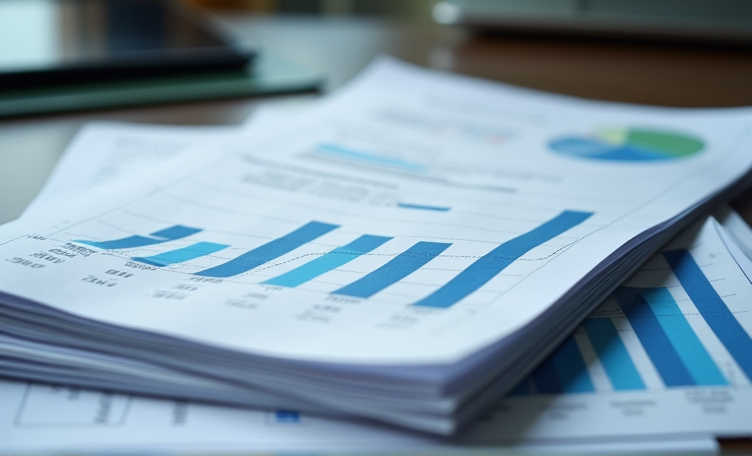💸 Mistakes when storing money at home: how to avoid them
Why is keeping money at home more than just a mistake? Is the danger of inflation enough to admit it? The important point is not only that money loses its purchasing power over time. Keeping significant amounts of cash at home puts your family’s safety at risk. Thieves and fraudsters actively seek out such “reserves “, which can lead to tragic consequences. Is there a way out? Of course! Money needs to be made to work. One option is a bank deposit, but there are also more interesting opportunities for increasing capital, such as investing in bonds. Don’t know how it works? Let’s figure it out!
📊 What are bonds and why are they needed?
Imagine that you need a large sum of money. You would probably ask friends or relatives for a loan. Companies, cities and even countries need to borrow money too, but they use bonds to do so. These are a type of debt obligation that the issuer undertakes to repay with interest. Bond terms can range from a few months to 25 years. Bonds are attractive to both individuals and governments because they often generate more income than regular bank deposits. Bonds can also help investors make money on changes in their market value.
| Type of bonds | Characteristics | Risks | Profitability |
|---|---|---|---|
| Corporate | Issued by companies. Depending on their success | Average | Tall |
| Municipal | Issued by local authorities | Low | Average |
| Government (OFZ) | Issued by the state | Very low | Low |
| Folk | Available to private investors through banks | Low | Moderate |
📈 How do bonds work? An example for beginners
When you buy a bond, you essentially lend money to the issuer (government, city, or company) for a certain period. In return, you are guaranteed a fixed interest rate. After the bond expires, you get your money back plus interest. For example, if you invested $1,000 in a 5% fixed- income bond for 3 years, you would get your $1,000 back plus $150 in profit after three years. Important: the longer the bond term, the higher the risks, but also the greater the potential profit. You can invest in both short-term bonds (up to a year) and long-term bonds, which can last up to 25 years. However, it is important to remember that the value of bonds on the market can fluctuate, which affects the potential profit.
🔎 Types of bonds: what to choose?
Let's look at the main types of bonds that are available to investors.
💼 Corporate bonds
These are bonds issued by private companies. They often offer higher interest rates than government bonds, but the risks are also higher. Investors can choose between reliable companies, such as large corporations, or riskier businesses. The most well-known and stable companies are called “blue chips.” These are the leading players in the market, such as large telecommunications companies and oil giants. However, be careful: the market can also encounter fraudulent bonds from companies with a dubious reputation that offer excessively high returns.
🏙 Municipal bonds
Municipal bonds are issued by cities and regions to finance projects. These bonds are less risky than corporate bonds, but the income on them is lower. Investors can be sure that their money is being used for infrastructure development, education or health care.
🇺🇸 Government bonds
The most reliable bonds are considered to be government bonds, known as federal loan bonds (OFZ). Investors trust them because the state acts as a guarantor of the return of funds. Although the income on such bonds is lower, they are ideal for those who want to preserve capital without risk.
👥 People's bonds
These bonds were created for private investors. They are available for purchase through bank branches and offer a fixed rate of return, usually higher than deposit rates, but with minimal risks. For example, coupon bonds provide a fixed income on a predetermined schedule.
📉 Risks: What should you be wary of?
Any investment involves risk. However, bonds are generally considered a less risky investment than stocks. An investor who owns bonds has priority in getting a return on their investment if the company goes bankrupt. However, market risks cannot be ignored, especially if you invest in bonds of unreliable companies or short-term instruments.
Short-Term Bonds: A Trap for Beginners
If the bonds are issued for a term of less than three months, this should raise questions. Such instruments are usually associated with high risks, and even experienced investors treat them with caution.
💰 How much money do you need to start?
Some investors are afraid that you need to have huge sums to buy bonds. However, this is not true. You can start investing in the stock market even with $1,000. Of course, to get significant profits, it is desirable to have large sums, but even with small capital you can start your journey into the world of investments.
🤝 Broker help: how to avoid mistakes?
Stock markets can seem complicated, especially for beginners. To avoid mistakes, it is better to contact professional brokers. They will help with registration, purchase and sale of bonds, and also provide advice on the most profitable instruments. Advice: for those who do not want to buy bonds directly, there is an alternative way – investing in mutual investment funds (MIFs) containing shares of bonds of various companies. This reduces risks and simplifies the investment process.
⁉️🤔 Popular questions and answers
- What is the difference between bonds and stocks?
Bonds are debt, while stocks are shares in a company. Bondholders receive a fixed income, while shareholders receive dividends based on the company's profits.
- What is the minimum amount to purchase bonds?
You can start investing in the stock market with $1000. Larger investments will, of course, bring more profit.
- Which type of bond is the safest?
Government bonds are considered the safest, since the state is responsible for their return.
- What are the risks associated with corporate bonds?
The risks are related to the possible bankruptcy of the company that issued the bonds. In the event of bankruptcy, the company may not return the invested funds.
- Should you buy short-term bonds?
Short-term bonds are usually less profitable and can be associated with high risks. Experienced investors prefer long-term investments.
- Where can I buy people's bonds?
People's bonds can be purchased through large banks such as VTB or Sberbank.
- How can you minimize risks when buying bonds?
It is important to research the issuer carefully, avoid bonds that are too short-term, and diversify your investments.
💎 Results and conclusions
Investing in bonds is not only a smart way to preserve capital, but also an excellent tool for increasing it. It is suitable for both conservative investors and those who are ready to take risks for higher returns. Regardless of the type of bonds, it is important to understand their nature and the risks associated with them. The key to successful investments is proper planning and regular professional advice.

